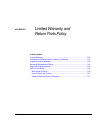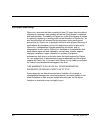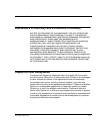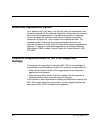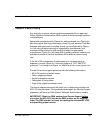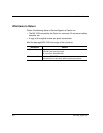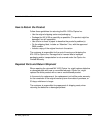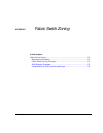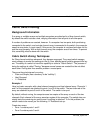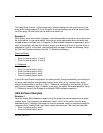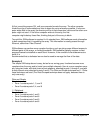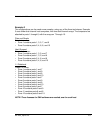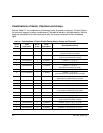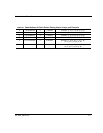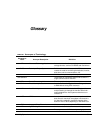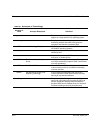
MediaVault 4105 User Manual
E-2
MV 4105_Ciprico Inc.
Fabric Switch Zoning
Background Information
If an array or multiple arrays and multiple computers are attached to a fibre channel switch,
by default the switch acts as a hub, relaying information from all ports to all other ports.
A number of problems are created, however. If a computer has two ports, both ports being
connected to the switch, and a single channel array is connected to the switch, the computer
sees the array twice. In most cases, if this occurs, the computer is confused and does not for-
mat the array properly. With a dual-channel array, the computer sees it four times. To prevent
this, something must be done with the switch.
Fabric Switch Zoning Techniques
As Fibre channel switches advanced, they became managed. They used switch manage-
ment software to control the settings on-the-fly. Also, different ports could be grouped into lay-
ers. The ability of a switch to have this capability is called a "Fabric Switch." The process of
doing the settings is called "Zoning," because several zones are created that do not affect
each other. Zoning also fixes another problem: unused ports.
There are three techniques for zoning:
• Plain and Simple (has a tendency to be “trafficky”)
• Host Grouped
• 1:1 Relational
Example 1
Here is a basic example, with a dual-channel computer and dual-channel array: Channels 1
and 2 of the computer are attached to ports 1 and 2 of the switch. The two channels of the
array are attached to ports 3 and 4 of the switch. The switch is ten-port.
By default, without zoning, the computer sees two copies of the array on each of the two
channels. Each channel of the array sees two copies of the computer. The switch also con-
stantly tests the remaining six ports to see if anything is attached. To fix this problem, the
switch needs to be zoned, per the following 1:1 Relational set-up:
Create two zones:
• Zone 1 contains ports 1 and 2
• Zone 2 contains ports 3 and 4



